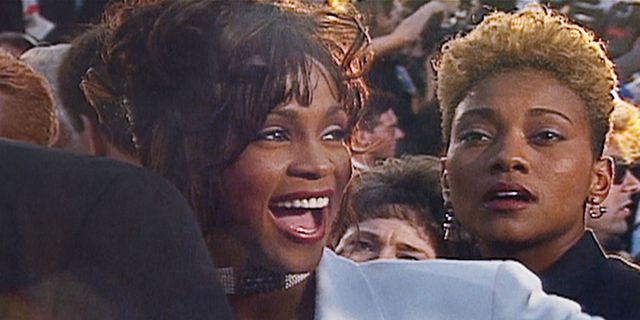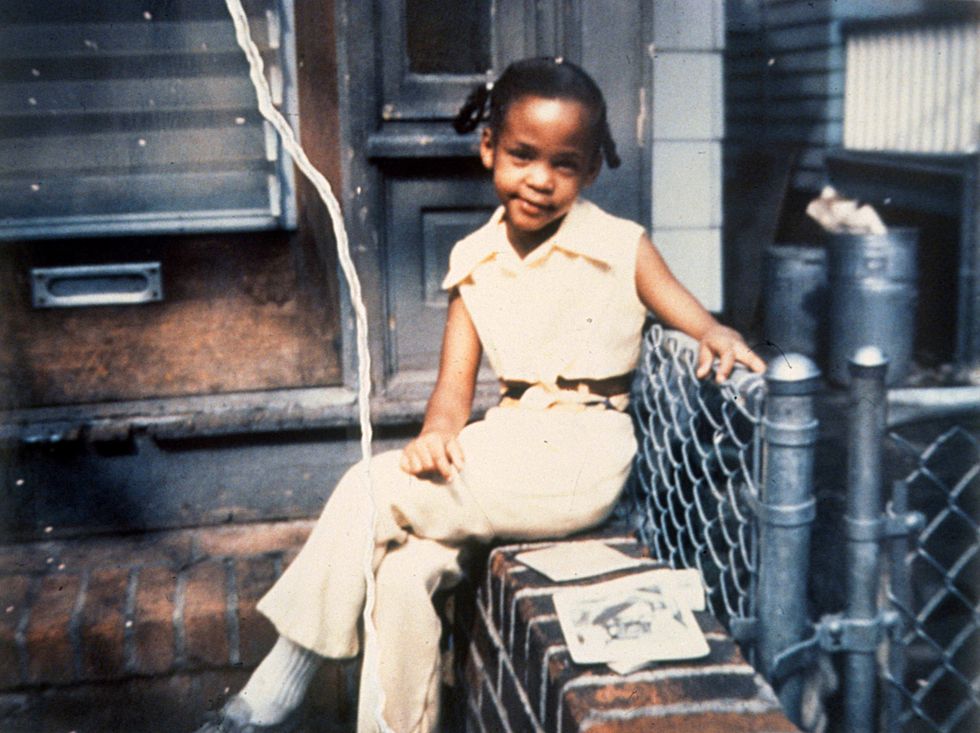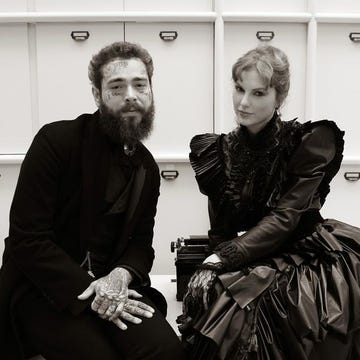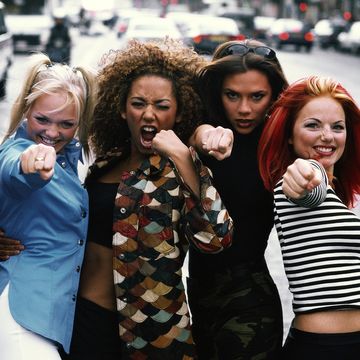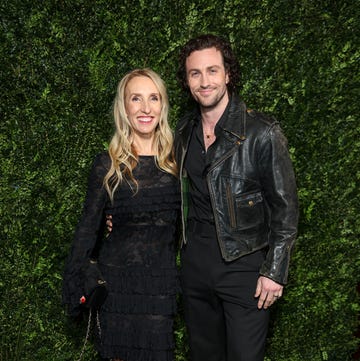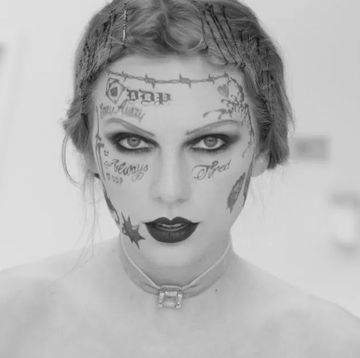Even if she ultimately fell victim to the pitfalls of fame, Whitney Houston understood it better than she often got credit for.
At the end of Whitney: Can I Be Me, a heartbreaking documentary from Kurt & Courtney directors Nick Broomfield and Rudi Dolezal on her life and the paralyzing effects her career placed on it, we see a clip of the late singer being asked what she think she will be remembered for. Ever astute, Houston offers a response that proved prophetic. "You know, probably doesn't really matter anyway because they're gonna remember me how they wanna remember me," she answered, laughing.
"They're gonna write books," she adds. "They're gonna write this, they're gonna write that, and everybody's gonna have their own idea."
Broomfield and Dolezal have their own idea of Houston and what led to her untimely death at the age of 48. Whitney: Can I Be Me isn't shy; its hypothesis drives the narrative, sometimes to a fault. Over a shot of the Beverly Hills Hilton, where Houston died, a voiceover declares: "People say Whitney died from overdose from drugs.... I know Whitney Houston actually died from a broken heart."
That heart was probably broken in multiple ways. But it is Houston's inability to be with Robyn Crawford—her best friend, whom she was rumored to be romantically involved with—that the documentary suggests truly damned the singer, a woman aching to be her true self in an industry that demanded she be everything but in order to become the world's first true Black global superstar.
Broomfield and Dolezal use Houston's last successful world tour in 1999 as the backdrop for their story of her life, career, and death, noting onscreen, "The tour would be a major turning point in Whitney's life." After all, it was when Crawford left the tour, and also Houston's life.
While Houston's marriage to Bobby Brown was widely known and public, there were whispers about her relationship with Crawford. Ellin Lavar, Houston's former hairstylist and longtime friend, says: "I think she was bisexual. Robyn provided a safe place for her…in that Whitney found safety and solace." So much so that journalist and friend Allison Samuels concluded that 1999 tour really was "the downfall of Whitney. Robyn was the person keeping her together, and that's why the drugs became so important to her. That was the crutch she used to get over that." Even Brown echoes at least part of this sentiment: "I really feel that if Robyn was accepted into Whitney's life, Whitney would still be alive today."
Whatever the relationship between Houston and Crawford really was, the latter was a true friend to the troubled singer. Houston's mother, Cissy, told Oprah in a 2013 interview that it had been Crawford who told her about Whitney's drug issues as far back in the late '80s. Yet Cissy never approved of her. When Oprah asked Cissy if her daughter was romantically involved with Crawford, she answered, "I don't really know" but said it would "absolutely" have bothered her if Whitney had been gay.
Knowing that Houston and Crawford's rumored relationship would serve as the centerpiece for Whitney: Can I Be Me, I was uneasy. Yes, many have assumed the two were more than friends—especially after reading Crawford's gorgeous obituary for Esquire—but if Houston never shared this part of her life with us, do we have the right to dissect it now?
But Crawford appears in the documentary herself, and hearing her speak about Houston alleviates any concern; it's clear you are watching someone who really did love the celebrated vocalist. Then there's the footage of Crawford sitting in the concert crowd, emphatically singing along to "If I Told You." Recalling Houston's teen modeling days, Crawford describes Houston's humility. "She would be on the cover of Seventeen and wouldn't even tell anybody," Robyn recalls. "Isn't that funny?" Crawford then describes her friend as "strange," but the smile on her face belies even that gentle criticism. We learn that Crawford, the elder of the two, used to protect Houston from bullies at school. They would later share an apartment, and Crawford helped the fledgling star make career choices.
All things considered, their bond seems to have been impenetrable—until it wasn't. Samuels recalls, "Robyn totally disappeared. I'm assuming they paid her off.... I think it was understood that it had to be Bobby and Whitney and this family unit."
But while forbidden love works well as a narrative device, Broomfield and Dolezal fail to recognize that no matter who Houston loved, as a Black woman in America, trying to be the first pop star of her kind, she had to grapple with multiple layers of resistance. As one confidante says, "She changed history for us, and she paid the price for it."
And the toll was far greater than just one close relationship. Her talent alone commanded stardom, but record executives wanted a Black pop icon who could appeal to white America. Several Arista Records representatives confirm in Whitney that they wanted her to play a role: that of a non-threatening, apolitical, always gracious princess. It was a staggering requirement to make of someone who had fled Newark after the 1967 riots spurred by anger over police brutality and redlining that segregated residents, among other barriers built by white politicians controlling a majority Black city.
Another imposition on Houston, who, like many Black vocalists, began singing in the church, was to remove the soul from her vocals—to make her music sound "less Black" and more like Barbara Streisand. This did indeed net her hits, but also earned her censure; the film revisits the the 1989 Soul Train Awards, where she was notoriously booed by the predominantly Black crowd, an act that "devastated" her.
Not only was Houston pressured to maintain this ideal and make herself more palatable to white audiences, but she was also under the scrutiny of her mother, who vicariously lived through her after failing in her own solo star pursuits, and wielded religion as a weapon, making her feel guilty about everything from divorce to, possibly, homosexuality. Houston was also sued by her father, whom she loved dearly, for $250 million two months before he died. Of course, there was also Brown—while he may have taken more than his fair share of the blame for substance abuse issues that started before he entered her life, he nonetheless once admitted to hitting her.
While Whitney argues convincingly that Crawford was supremely important to Houston, it missteps in assuming one person alone could save her. I'm not convinced that a Houston free of romantic restrictions would have suffered any less. For her to become the first Black pop star and the most awarded female act of all time, she had to hold back all that she was. She had to appease record executives, family members, spouses, and friends. There might not have been a Beyoncé or a Rihanna without a Whitney, but what the ascent to stardom took from her was complex and, simply, unconscionable.
As for her own thoughts, Houston did know how she wanted to be remembered, actually: "I just want people to remember me as a real nice person. Somebody who cared. Somebody who tried to do everybody righteously." Whitney was a queen. A profound talent whose voice is, was, and forever shall be unmatched. I'm just sorry that wasn't enough for everyone else and that, in trying to please everyone else, her spirit was irreparably crushed—years before her life suddenly ended.
